Aviation Week and Space Technology
- Login
- Subscribe Now
- Reprints/Licensing
- 100+ Years of Aviation Week 1916-Present
In Partnership With
Boeing

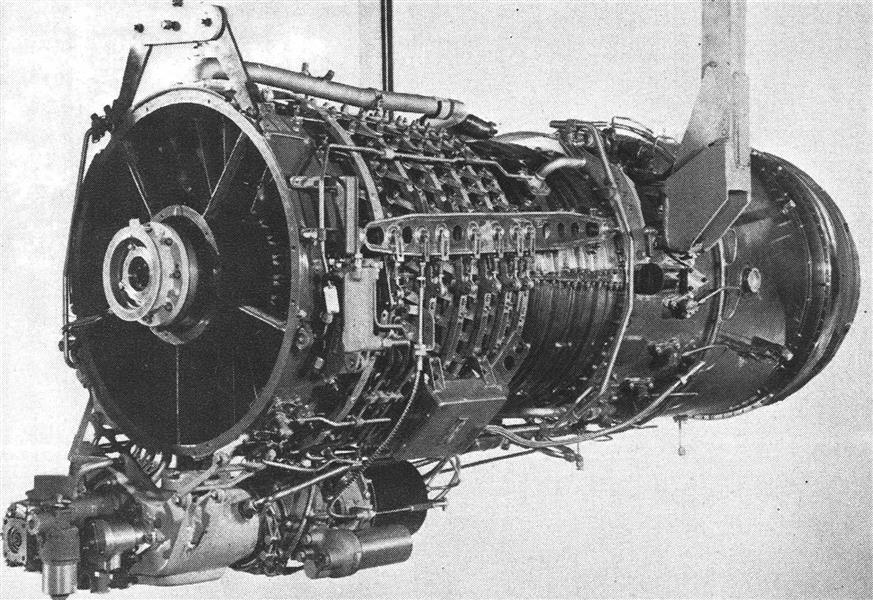 August 24, 1970
P. 52 (5 Pages)
GE1/J1B engine (above) generates 5,200 lb. of thrust and is being offered as a powerplant for advanced, lightweight fighters. A dry turbojet, the engine also carries the designations Re-look GE1 and ATEGG 1A.
August 24, 1970
P. 52 (5 Pages)
GE1/J1B engine (above) generates 5,200 lb. of thrust and is being offered as a powerplant for advanced, lightweight fighters. A dry turbojet, the engine also carries the designations Re-look GE1 and ATEGG 1A.
 August 24, 1970
P. 52 (5 Pages)
GE1/J1A1 augmented turbojet, shown with a dummy afterburner, generates 7,000-8,000 lb. thrust and is designed for use in advanced supersonic fighter aircraft. This engine, with afterburner, is the basis for the high performance, augmented J97.
August 24, 1970
P. 52 (5 Pages)
GE1/J1A1 augmented turbojet, shown with a dummy afterburner, generates 7,000-8,000 lb. thrust and is designed for use in advanced supersonic fighter aircraft. This engine, with afterburner, is the basis for the high performance, augmented J97.
 August 24, 1970
P. 52 (5 Pages)
Original GE1 core engine, which served as the starting point for General Electric’s growing family of military and commercial engines was a dry turbojet in the 5,000-lb. thrust class. First flightweight version of the engine is shown above right.
August 24, 1970
P. 52 (5 Pages)
Original GE1 core engine, which served as the starting point for General Electric’s growing family of military and commercial engines was a dry turbojet in the 5,000-lb. thrust class. First flightweight version of the engine is shown above right.
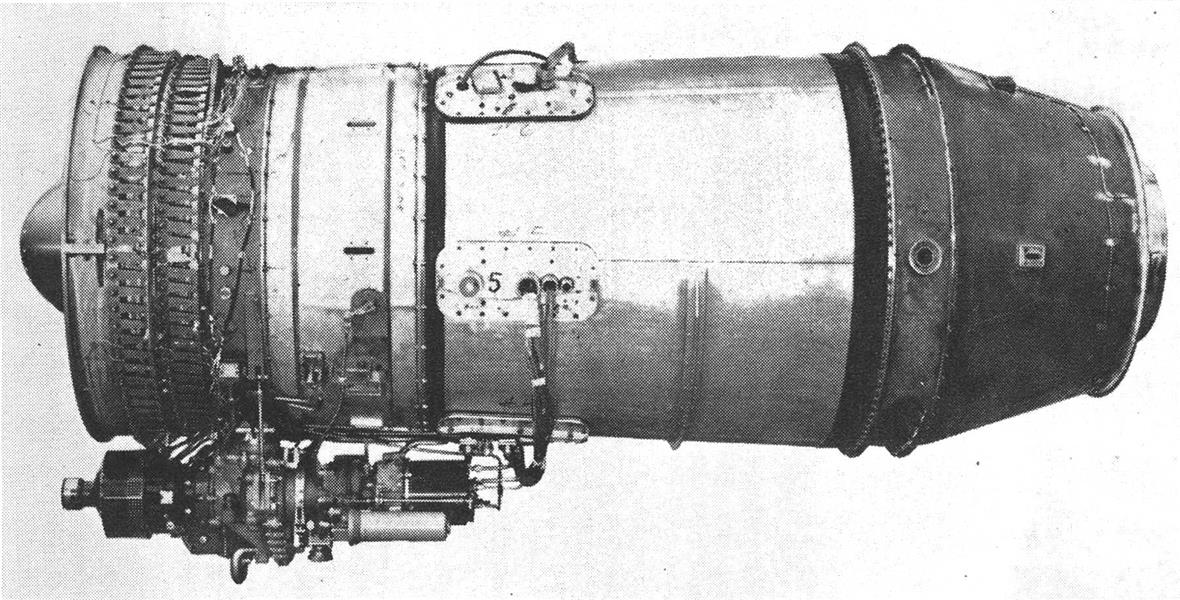 August 24, 1970
P. 52 (5 Pages)
Non-augmented GE1/10 dual rotor turbofan has served as a demonstrator for cruise and lift-cruise turbofan engines for military aircraft.
August 24, 1970
P. 52 (5 Pages)
Non-augmented GE1/10 dual rotor turbofan has served as a demonstrator for cruise and lift-cruise turbofan engines for military aircraft.
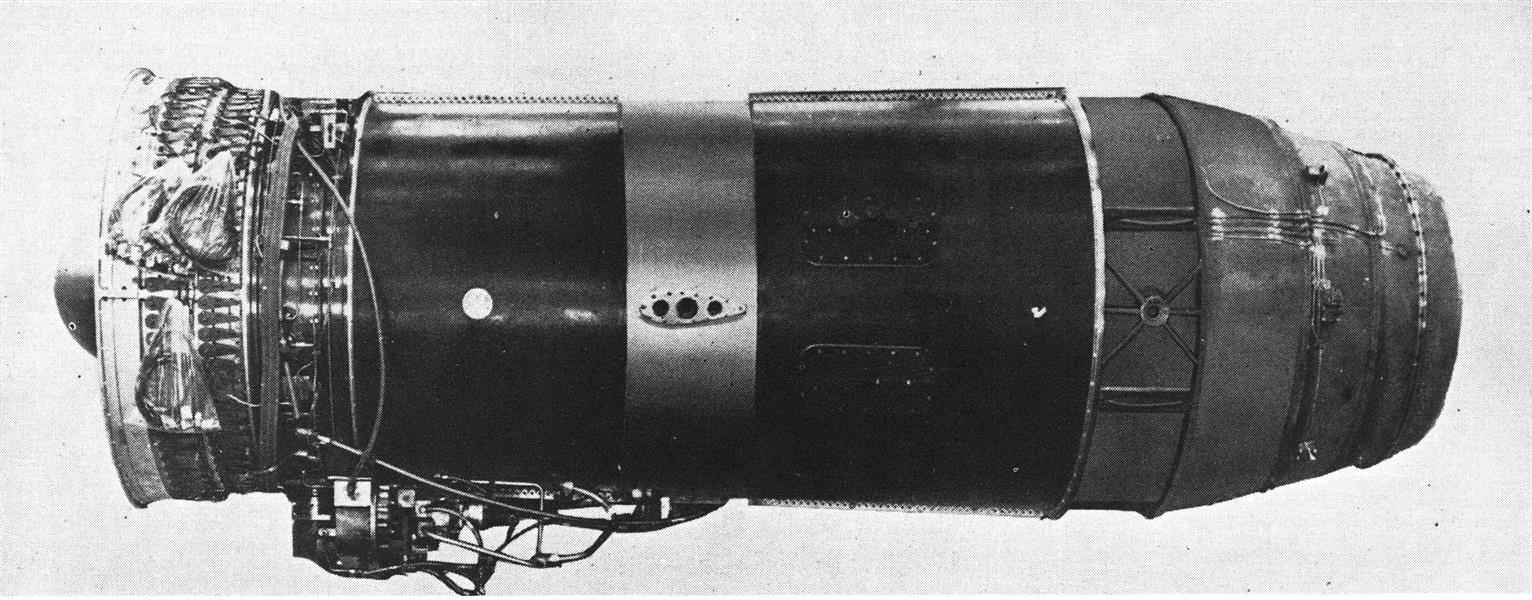 August 24, 1970
P. 52 (5 Pages)
Non-augmented GE9 dual rotor turbofan engine (above) served as the progenitor of the present F101-GE-100 powerplants designed for the B-1 bomber. It had a medium bypass ratio fan and a separate turbine stage and generated 14,500 lb. of thrust.
August 24, 1970
P. 52 (5 Pages)
Non-augmented GE9 dual rotor turbofan engine (above) served as the progenitor of the present F101-GE-100 powerplants designed for the B-1 bomber. It had a medium bypass ratio fan and a separate turbine stage and generated 14,500 lb. of thrust.
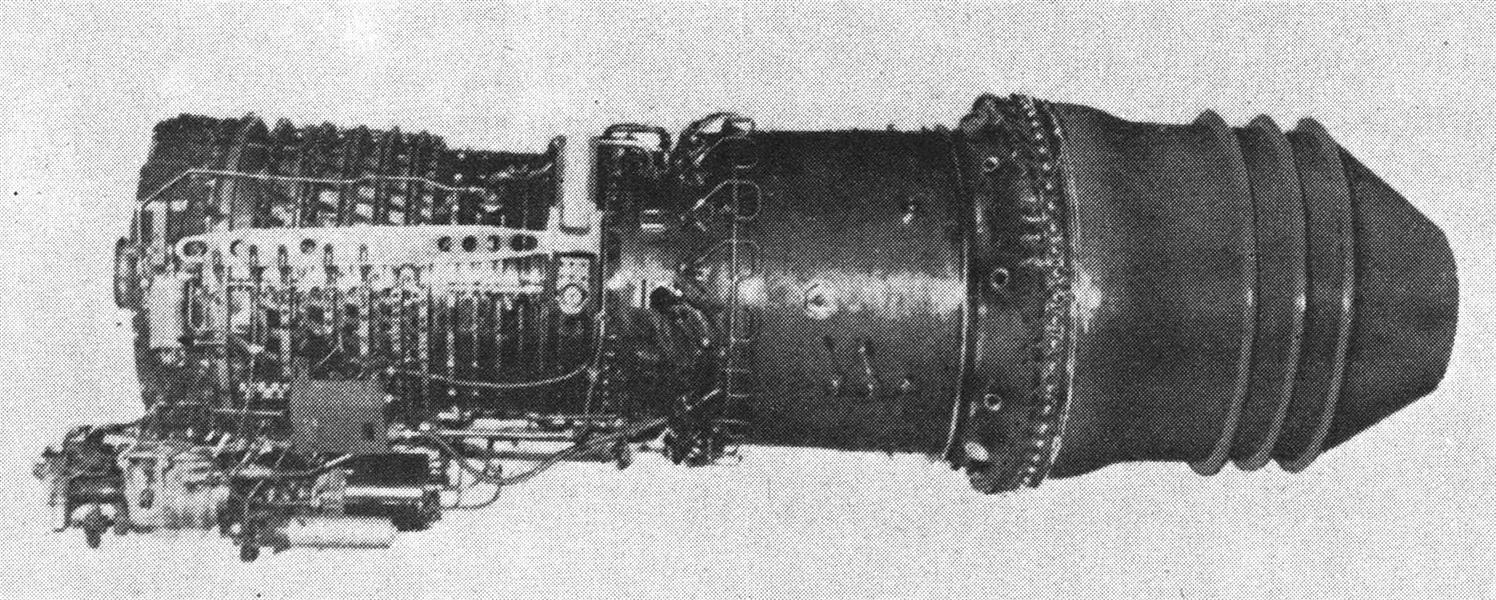 August 24, 1970
P. 52 (5 Pages)
The engine was the first powerplant in the GE1 family to be funded under the Air Force’s Advanced Turbine Engine Gas Generator program. Equipped with movable turbine-nozzle guide vanes, the engine served as a variable area turbine demonstrator (below).
August 24, 1970
P. 52 (5 Pages)
The engine was the first powerplant in the GE1 family to be funded under the Air Force’s Advanced Turbine Engine Gas Generator program. Equipped with movable turbine-nozzle guide vanes, the engine served as a variable area turbine demonstrator (below).
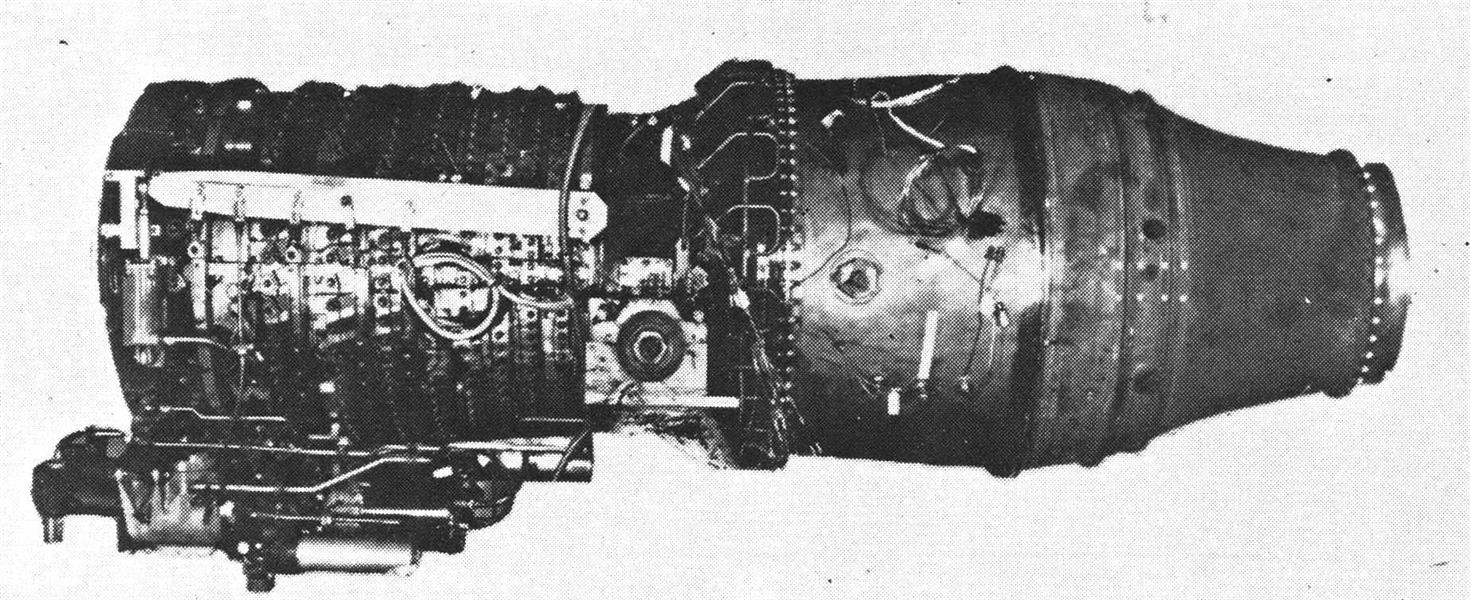 August 24, 1970
P. 52 (5 Pages)
GE9 core engine, also designated ATEGG 1B, was the first advanced technology, second generation GE1 engine. Developed under the USAF Advanced Turbine Engine Gas Generator program, this engine had higher stage loadings than the ATEGG 1A.
August 24, 1970
P. 52 (5 Pages)
GE9 core engine, also designated ATEGG 1B, was the first advanced technology, second generation GE1 engine. Developed under the USAF Advanced Turbine Engine Gas Generator program, this engine had higher stage loadings than the ATEGG 1A.
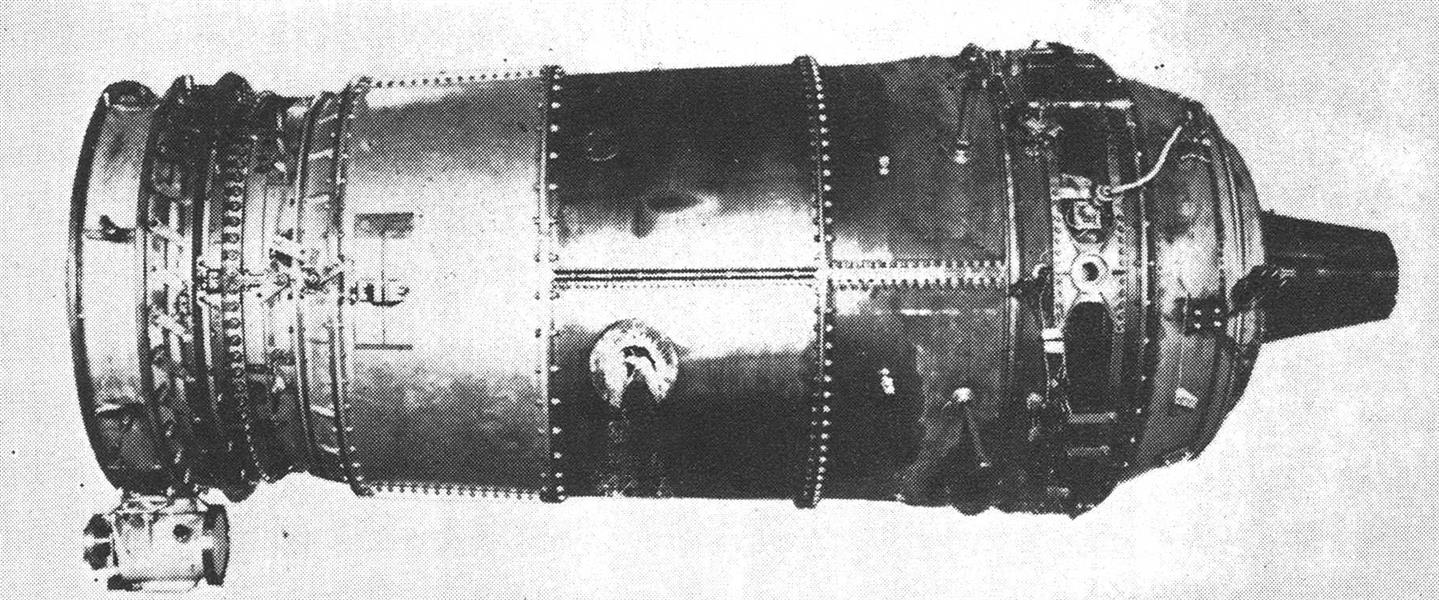 August 24, 1970
P. 52 (5 Pages)
First front fan version of the GE1 (above) was a single rotor, low bypass ratio powerplant designed to serve as a turbofan demonstrator.
August 24, 1970
P. 52 (5 Pages)
First front fan version of the GE1 (above) was a single rotor, low bypass ratio powerplant designed to serve as a turbofan demonstrator.
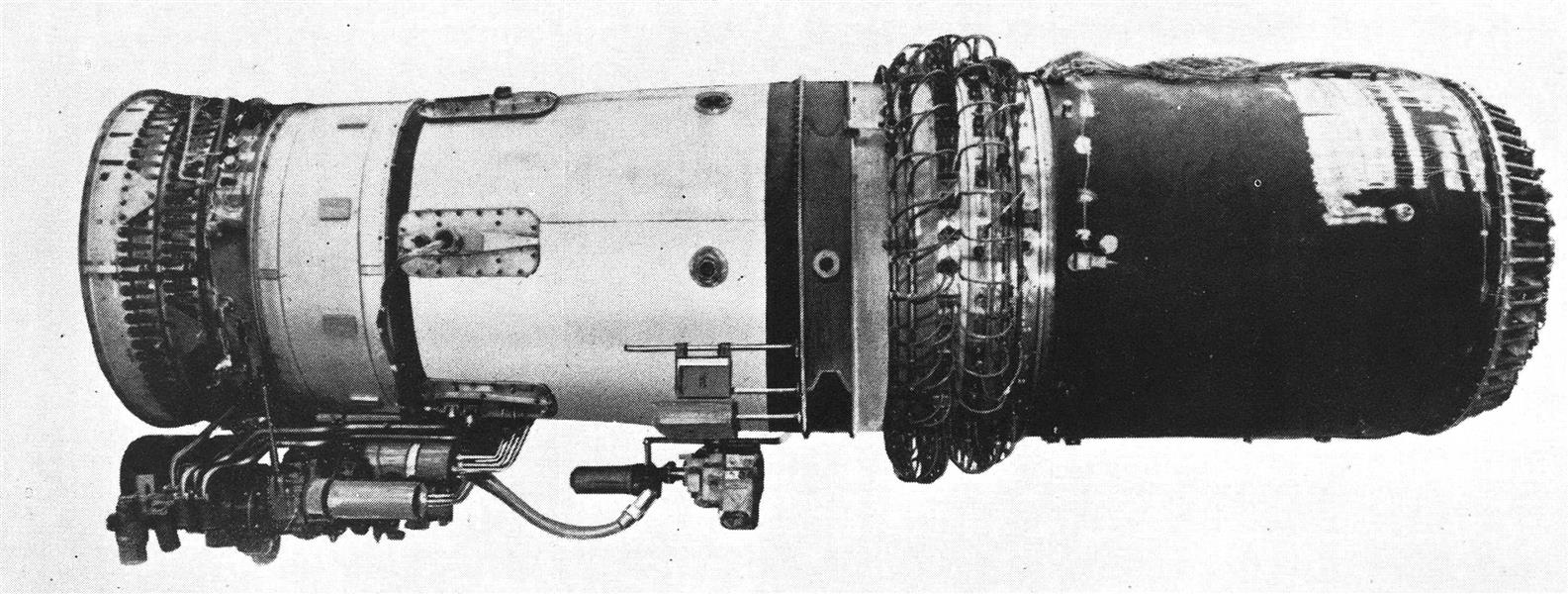 August 24, 1970
P. 52 (5 Pages)
GE/10 turbofan with afterburner (below) served as the General Electric demonstrator in engine competitions for several fighters.
August 24, 1970
P. 52 (5 Pages)
GE/10 turbofan with afterburner (below) served as the General Electric demonstrator in engine competitions for several fighters.
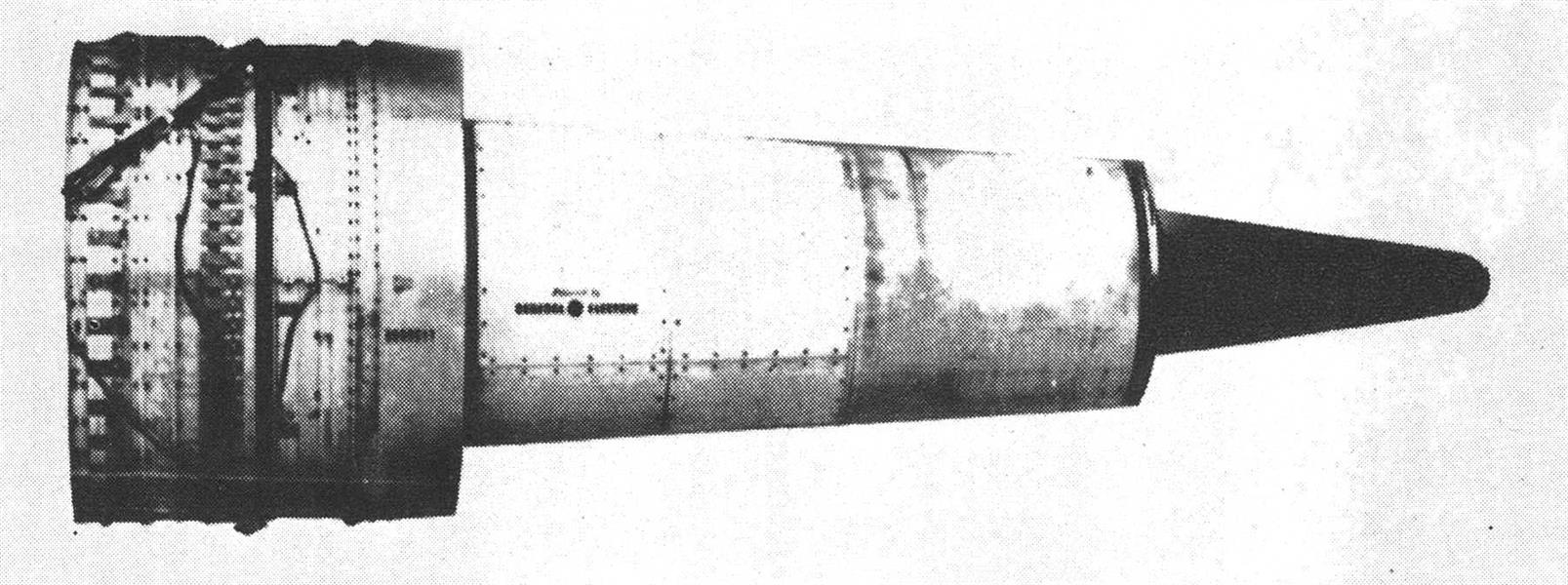 August 24, 1970
P. 52 (5 Pages)
This engine was followed by the GE1/6 dual rotor, high bypass ratio turbofan (below) which served as the 2/3-scale demonstrator for what is now the TF39 engine.
August 24, 1970
P. 52 (5 Pages)
This engine was followed by the GE1/6 dual rotor, high bypass ratio turbofan (below) which served as the 2/3-scale demonstrator for what is now the TF39 engine.
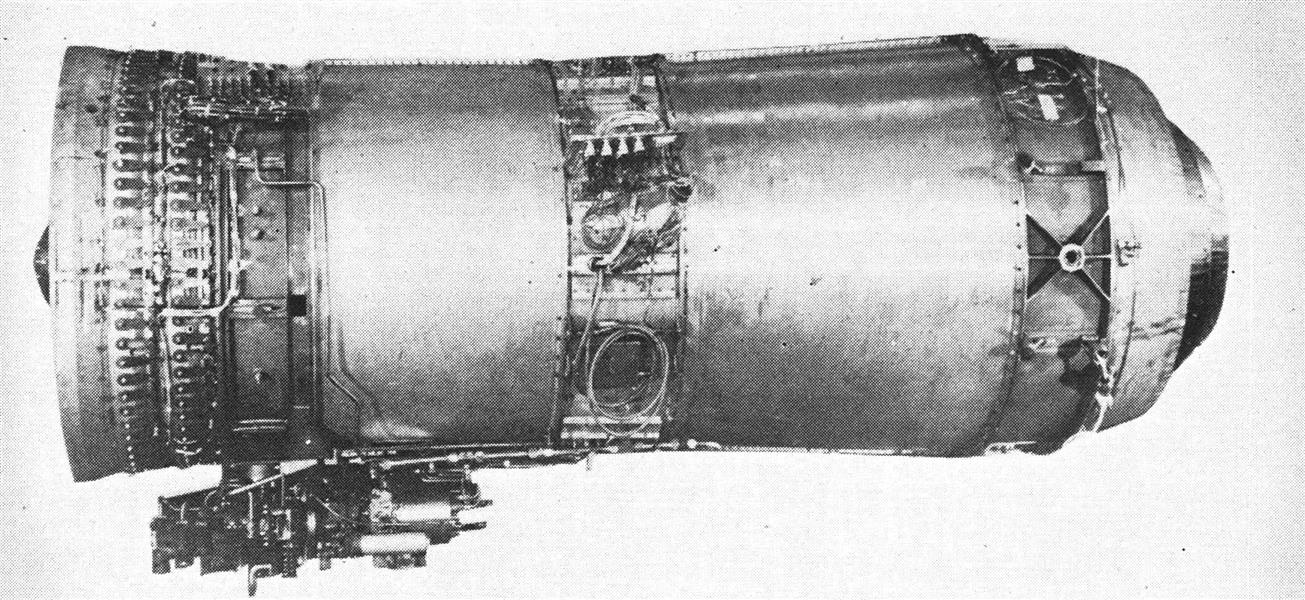 August 24, 1970
P. 52 (5 Pages)
A later version (right) had a higher bypass ratio fan and produced 16,000 lb. thrust in static tests.
August 24, 1970
P. 52 (5 Pages)
A later version (right) had a higher bypass ratio fan and produced 16,000 lb. thrust in static tests.
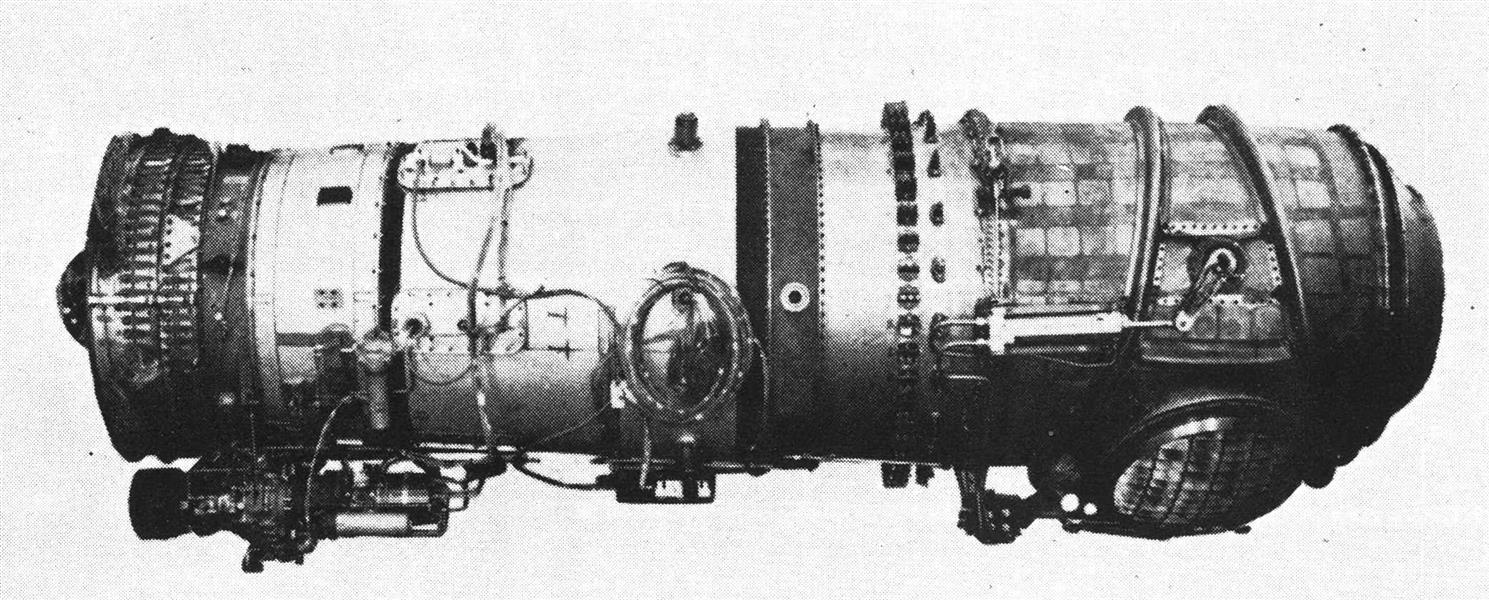 August 24, 1970
P. 52 (5 Pages)
Another variant of the GE 1/10 (above) was used to test thrust vectoring nozzles.
August 24, 1970
P. 52 (5 Pages)
Another variant of the GE 1/10 (above) was used to test thrust vectoring nozzles.
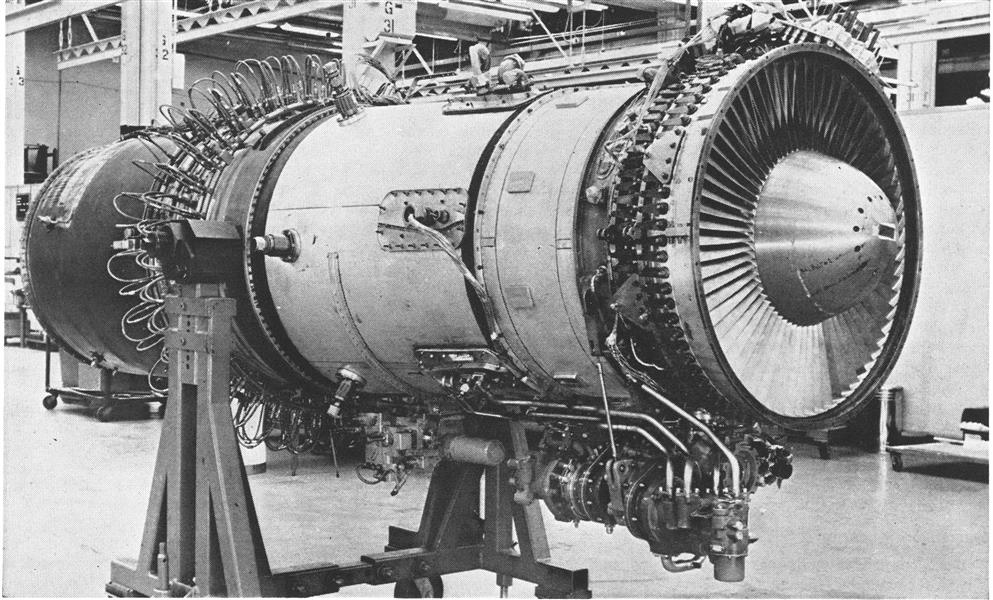 September 29, 1969
P. 23
GE1/10 Turbofan Aimed at F-14B, F-15 Programs
September 29, 1969
P. 23
GE1/10 Turbofan Aimed at F-14B, F-15 Programs
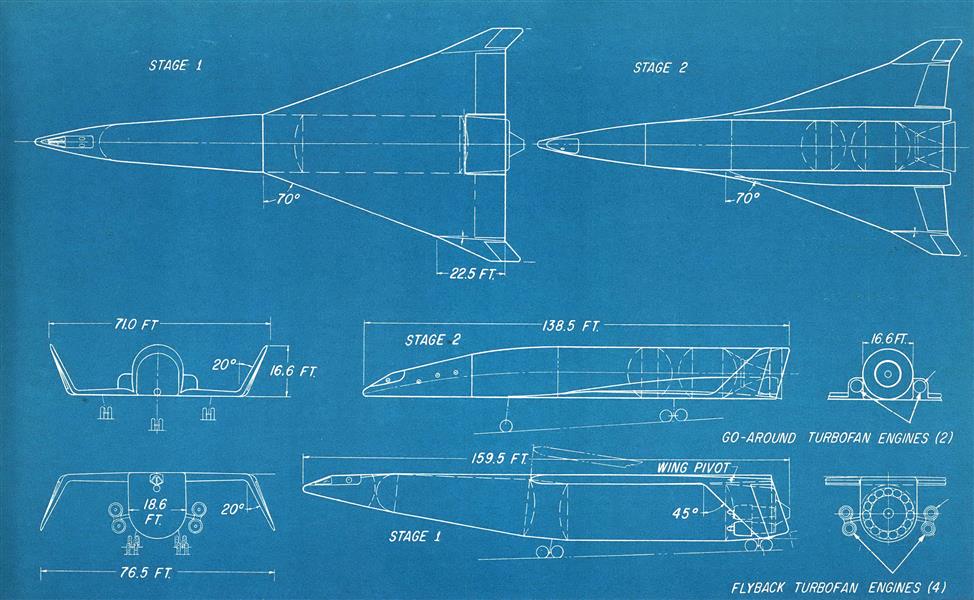 February 24, 1964
P. 34
Reusable launch system concept developed over the last 30 months by Martin-Denver represents firm’s entry into recoverable booster-aerospace plane field. The concept, called Astrorocket, is a two-stage vehicle (see dimensions above). Both stages are manned and mated in parallel, Stage 2 nesting atop Stage 1
February 24, 1964
P. 34
Reusable launch system concept developed over the last 30 months by Martin-Denver represents firm’s entry into recoverable booster-aerospace plane field. The concept, called Astrorocket, is a two-stage vehicle (see dimensions above). Both stages are manned and mated in parallel, Stage 2 nesting atop Stage 1
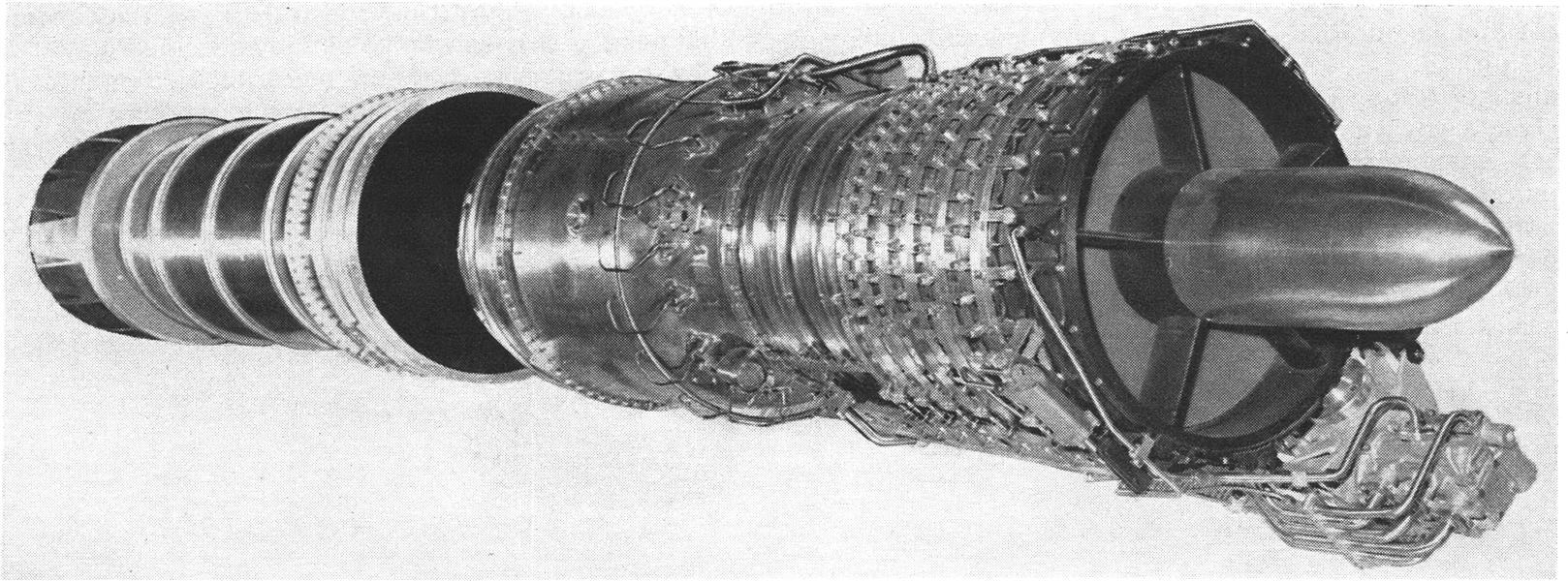 August 11, 1969
P. 72
Building block for General Electric’s new J97 7,000-8,000-lb.-thrust engine is GE1/J1A1, shown in mockup with afterburner.
August 11, 1969
P. 72
Building block for General Electric’s new J97 7,000-8,000-lb.-thrust engine is GE1/J1A1, shown in mockup with afterburner.
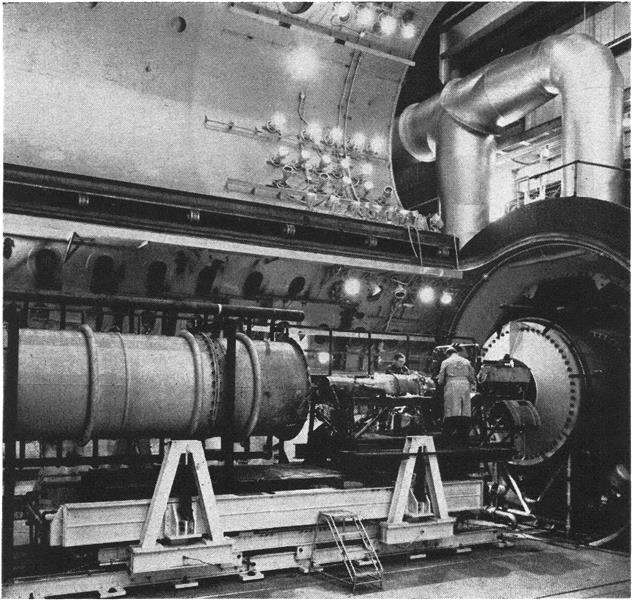 August 11, 1969
P. 72
Altitude testing of the J97 is being conducted at USAF's Arnold Engineering Development Center, where it is shown fitted with calibration nozzle in test cell.
August 11, 1969
P. 72
Altitude testing of the J97 is being conducted at USAF's Arnold Engineering Development Center, where it is shown fitted with calibration nozzle in test cell.
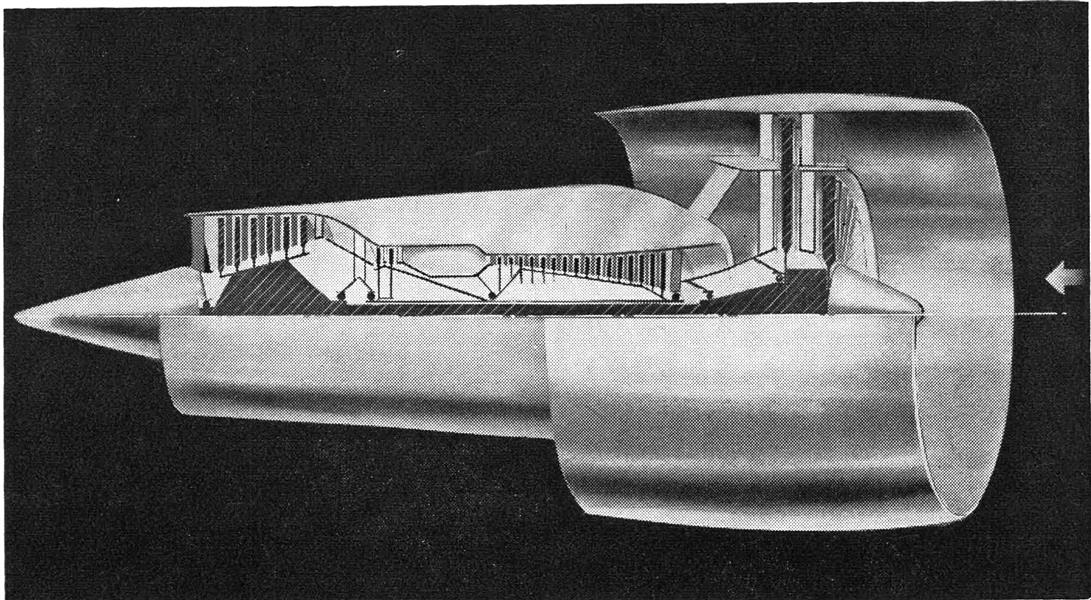 August 16, 1965
P. 42
GENERAL ELECTRIC GE1/6 turbofan configuration, selected as the engine to power the Air Force’s C-5A heavy logistics transport (AW&ST Aug. 9, p. 34), features a half-length fan in front followed by a full-length fan. A flow-divider acts as an endplate, or duct surface, for the shorter fan blades, and lower portions of both blades provide supercharging for the 16-stage compressor. Fan arrangement gives a bypass
August 16, 1965
P. 42
GENERAL ELECTRIC GE1/6 turbofan configuration, selected as the engine to power the Air Force’s C-5A heavy logistics transport (AW&ST Aug. 9, p. 34), features a half-length fan in front followed by a full-length fan. A flow-divider acts as an endplate, or duct surface, for the shorter fan blades, and lower portions of both blades provide supercharging for the 16-stage compressor. Fan arrangement gives a bypass